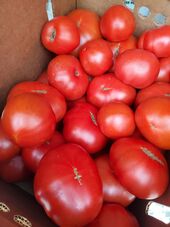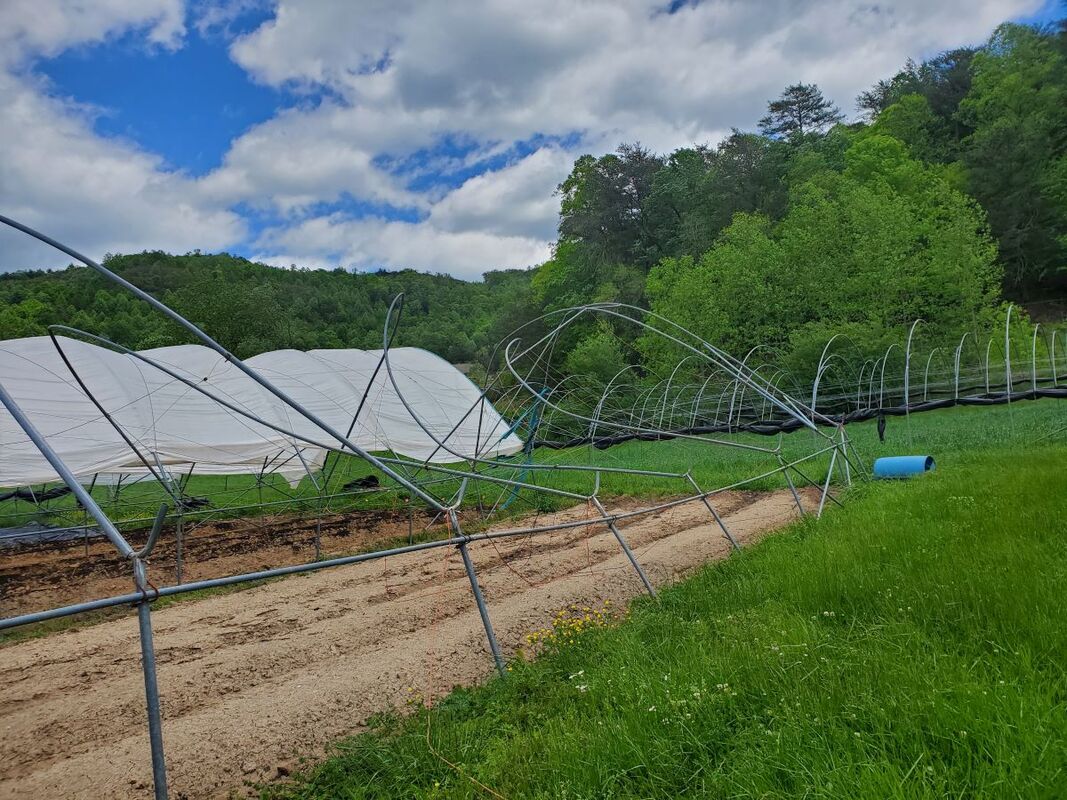 The stoics have this practice called “negative visualization.” It’s the stoic principle I’ve struggled the most with because in some ways, it feels a bit like dwelling on the negative, which just can’t be good for mental health right? But it turns out, this is more like training. It’s both practice for what to do when things go badly, and practice in acknowledging how much worse things could be and how good it actually is. Seems a bit counterintuitive but I see where they’re going with it. And today, I decided I should try my hand at it. See, I had a “bad” day (I mean, I’ve already put bad in quotation marks, it’s already working!). On the grand scheme of things, it was nothing, but I was frustrated and angry in the moment (okay, let’s be honest, several moments), reacting poorly to things out of my control—to the gap between expectations and reality, and immediately was staring down an existential crisis. I am past the emotions now so I can easily laugh about it, but perhaps, just perhaps, if I had trained for that moment, I could have avoided the emotional pitfalls that come with the expectation that the world and everyone in it should shape their behavior to suit me. It's an interesting thought experiment anyway. Seems simple sitting this far from my emotional reaction. But how in the world do you visualize every little thing that could go wrong? I mean, geez, that could really take you to some dark places. But maybe I’ll give it small scale try anyway, and see if I manage to ever have a “bad” day again.
0 Comments
 You know, other than basic literacy skills, I never quite understood why we pushed kids to read just any kind of book. I didn’t understand that reading comprehension is a skill that can be improved even through fiction. I mean, I loved getting prizes for reading as a youth, don’t get me wrong, but it was well into my adulthood before I understood the real purpose of getting kids to read yet another Nancy Drew book. In fact, it was probably when I read the Harry Potter series as an adult. Because it was Harry Potter who taught my grown adult self that the idiomatic expression “for all intents and purposes” was not, in fact, “for all intensive purposes.” Those are two very different concepts. I mean, intensive purposes reek of blood, sweat, and tears, of focus and determination and mind over matter, etc., which is all fine and dandy for someone with intensive purpose, but sometimes you just want a more casual gathering of intents, and maybe some purposes too. You know, if you want to, totally optional, sort of thing. It makes sense that in my youth I would have heard “intensive purpose”. After all, we’re just sort of figuring out who we are and what our purpose is and that can be awful intense. We lean heavy into absolutes before we discover there’s no such thing (I love how I just switched subjects there with the assumption that this happens to everyone in their youth. Maybe it was just me, but I doubt it, and I didn’t want to feel so lonely I guess, so I switched to “we”, but I’ll switch back now because I’m pretty sure thinking the idiomatic expression was “intensive purposes” is not quite as universal). So “intensive purpose” must have resonated with my youthful self until well into adulthood when I finally got to read Harry Potter and experience the casual, voluntary joy of a truly well written story and learned the proper use of an age-old idiomatic expression. And so yes, we can learn, even in adulthood, from fiction.  I never understood brand loyalty. I just bought the cheapest version of whatever every time and thought nothing about it. Until I needed things to last, or be right, or something that relied on me talking to a human about a problem I was having with their product. I discovered that “cheapest” often means absence of said human. You’re on your own, buyer beware, etc. I discovered the value of customer service. I learned that sometimes it’s worth paying a little bit more for the security of knowing I’ll be taken care of if I ever have a problem. I see complaints in many of my market farming forums about how “expensive” Johnny’s seeds is, which is one of my favorite seed companies. But Johnny’s Seeds is the company that discovered through another customer that their pea seeds had been damaged by weevils in the warehouse and reached out to me to credit and replace those seeds before I even opened the package. We were having trouble with some of our wholesale labels not sticking to the boxes, which wasn’t a problem I had encountered before. I reached out to the label printing company and not only did they, without question, replace the labels, but they also wouldn’t let me pay for the replacement labels! The Nantahala River is extremely cold. Our first descent down that river left my teeth chattering in the middle of July. So in plenty of time before our next trip down that river, I ordered a dry top. The company sent the wrong item. I contacted the company, who sent a return label, but didn’t mail the replacement correct item until they got shipping notification of the return item. Then there was some hitch in shipping (not the company’s fault) that informed us that the replacement dry top would not arrive in time for our trip. So the company (Outdoor Play if anyone is interested in my brand loyalty), overnighted ANOTHER dry top to ensure it arrived before our trip before the original replacement dry top arrived. Talk about correcting a mistake! (We did return the second dry top when it arrived). And so, not only am I brand loyal to these and other companies because of customer service, I’ve learned to hold them up as examples in my own business. Because here’s the thing: companies are made up of working humans, and humans make mistakes. And humans have relationships and business is really about relationships. So when humans make a mistake and are given an opportunity to fix that mistake and they REALLY make it right, I feel seen and cared about and I develop loyalty to that relationship. I want those humans who care about me and my satisfaction with their product to be able to keep doing that good work and that is worth paying a little bit more for. Hence, brand loyalty.  Ten years ago I would have shaken my fist to the sky and despaired. I would have questioned all the choices that led me to this moment and wondered how I was to go on. Today, however, barely warranted a shoulder shrug and, perhaps, a slight eye roll. Some might call this resilience, and perhaps it is. I call it being old (er). I have to add the “er” lest my elders anger to the implication that I am as wise as they are. That is not, in fact, what I claim today. Today, I am simply much older and more experienced than I was ten years ago. This is no longer my first rodeo, so to speak. It’s no longer the first dreadful weather event. It’s not even the first time this particular structure was damaged. And still here we are farming. You know, I’ve been spending a lot of time over the past several years “working on myself.” It’s funny how I grew into that. In my youth, I was ever the sensitive soul, quick to anger or despair. I was, in the words of the father of positive psychology Martin Seligman, a “catastrophizer.” Even though I knew my sensitivity was a character flaw, it never occurred to me that I could change it. Isn’t that strange? George Bernard Shaw declared “youth is wasted on the young.” Never was a truer statement made, I don’t think. But the last several years have taught me things that my elders had been telling me with blue faces, but that I had, for some strange yet inevitable reason, to come by on my own. Things like: worrying or despairing over something doesn’t influence said thing at all; life will go on; and everything will be okay. Twenty years of farming has taught me that no matter what mother nature throws at us (this is NOT a challenge, mother nature), we’ll probably still be here farming. Age has taught me that if not, it will still all probably be okay. These lessons, and the change in me that they instilled, has opened me up to a joy I never fathomed as a youth. My elders, in all their wisdom, never quite conveyed the delight of middle age. I suppose I should keep this surprise to myself as well. For perhaps surprise is the great enhancer of the very joy of which I’m confessing. Ah well, too late, the cat’s out of the bag. The young won’t listen anyway. |
AuthorWrite something about yourself. No need to be fancy, just an overview. Archives
July 2024
Categories |

 RSS Feed
RSS Feed